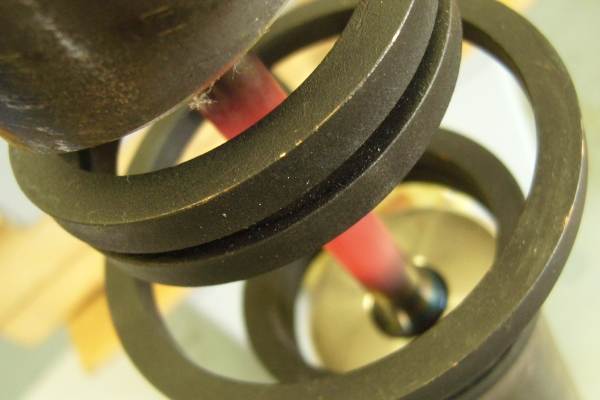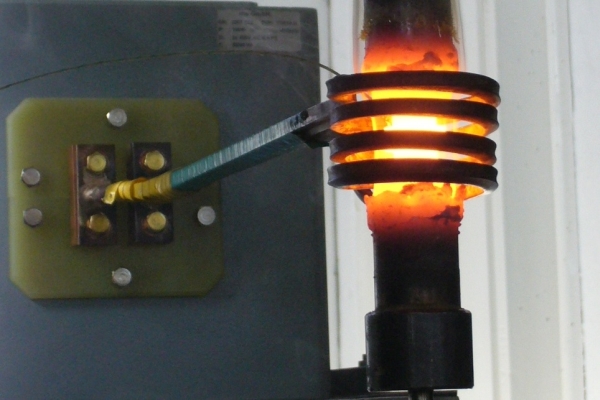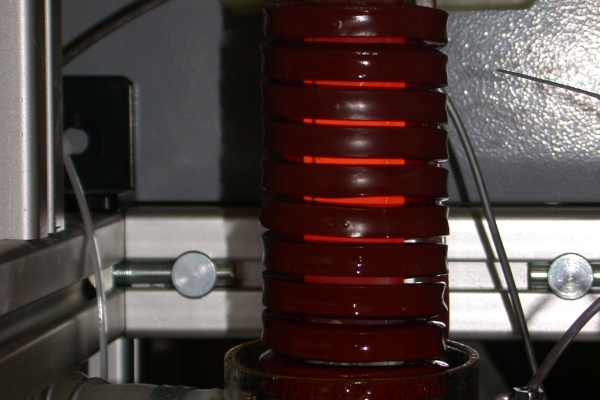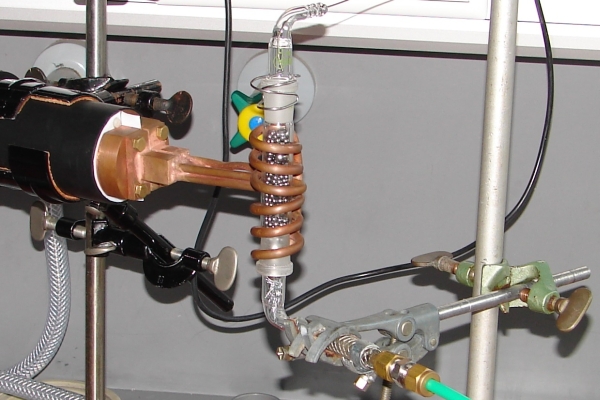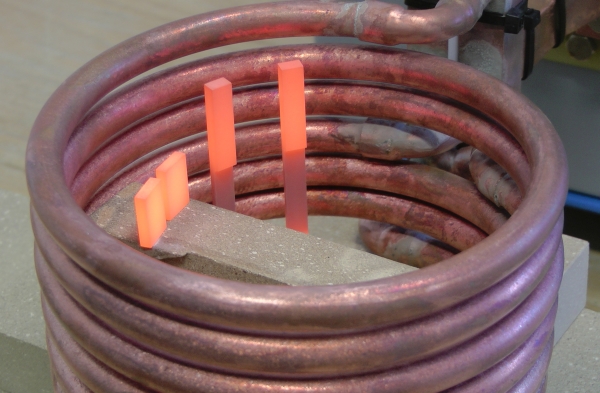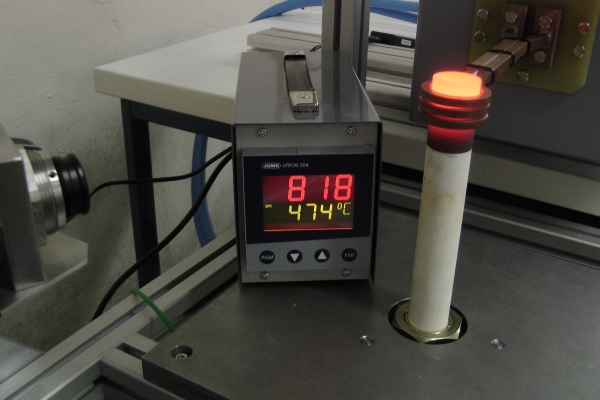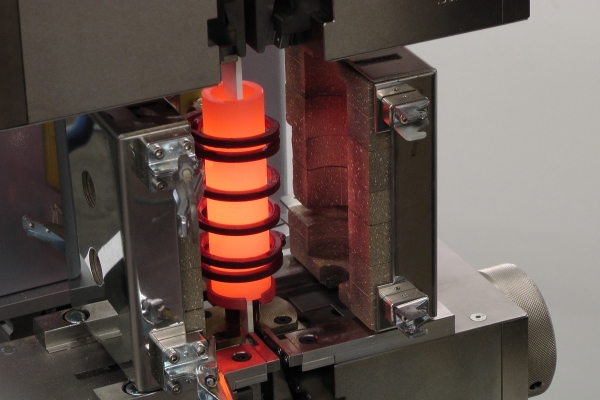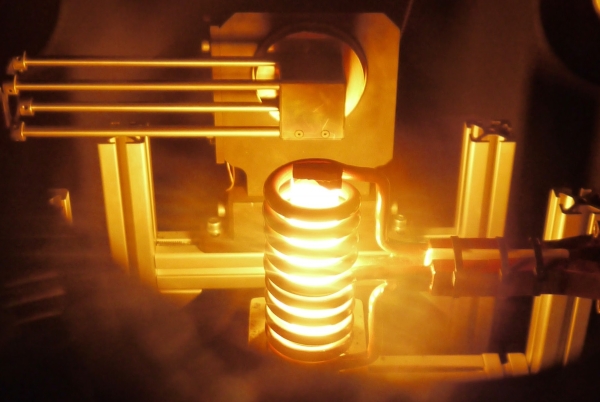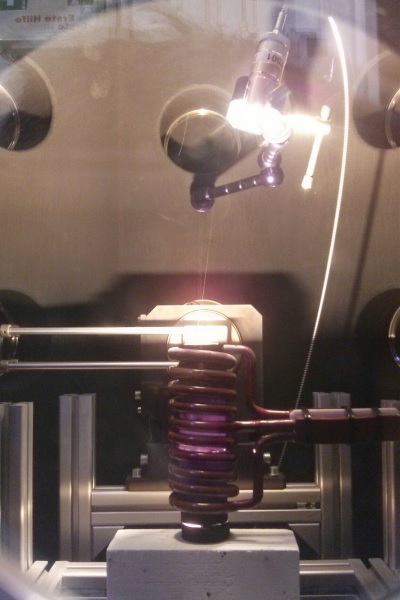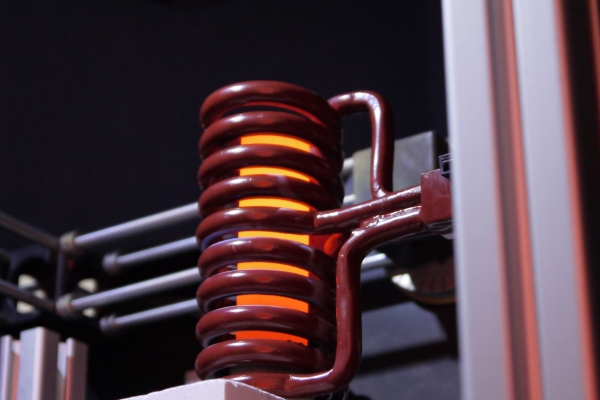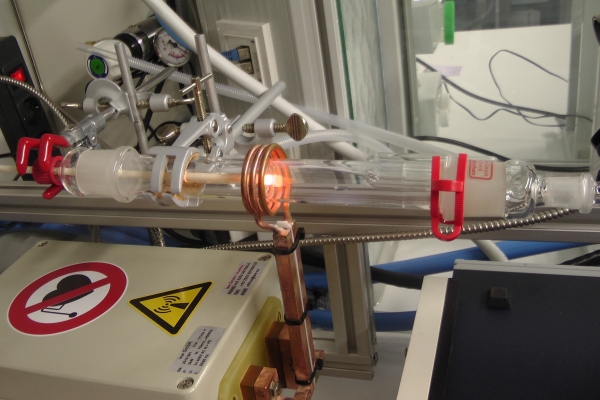Science and material testing
Science and material testing
Even in scientific research and material testing, induction heating offers a wide range of applications. For example, metal specimens are heated for experimental purposes and then subjected to mechanical stress tests such as determining shear strength, tensile strength, or the coefficient of thermal expansion.
When a high temperature gradient is required, induction heating is usually preferred over conventional furnace heating. It enables rapid and reproducible heating — often robot-controlled — ensuring stable process parameters while reducing both time and costs. However, it should be noted that the temperature homogeneity of induction heating can never be guaranteed to the same extent as with furnace heating.
Extended test durations can also negatively affect the metallurgical properties of the specimens, such as precipitation, coarsening, recrystallization, and creep behavior.

